NIL
The Model Buckeye, Bruce Thornton is Back to Win Games in 2025-26: “I Don’t Care What Else I Do”
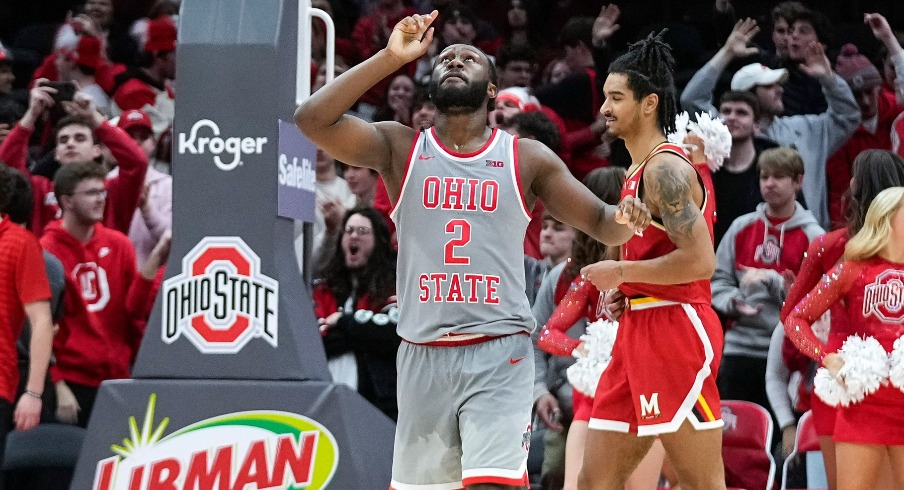
He might hail from Georgia, but Bruce Thornton is the embodiment of a Buckeye.
In the age of constant college basketball roster turnover due to the combination of NIL and the transfer portal (revenue sharing forthcoming), Thornton has had ample opportunity to leave Ohio State. He would have been forgiven for seeking a bona fide contender after missing the NCAA Tournament with the Buckeyes for the third straight year, two of which he was their leading scorer.
But he stayed.
“I just stand by my morals,” Thornton said. “I just believe in staying true to people who did well by you. I’ve always been like that, since I was young. Staying with the same teams, staying with the same group of people, my friends from back home. I just stay the course. And I always reaped the benefits of staying loyal, and just put it in God’s hands.”
Thornton’s career accolades are great, but he came back for his final year with his one and only college team with one object in mind: winning games. Or as Thornton’s shirt read and the Buckeyes’ new mantra goes, “Winning over everything.”
“I’m just trying to win games,” Thornton said. “I don’t care what else I do.”
“I just believe in staying true to people who did well by you. I’ve always been like that.”– Bruce Thornton on returning to Ohio State
Yes, Thorton is going to be compensated on the NIL and revenue share side, but loyalty is a commodity in the modern-day NCAA hoops landscape. Thornton could have easily sought compensation elsewhere. But he instead showed his loyalty in abundance.
He’s also a two-time second-team All-Big Ten selection and will almost certainly become the first four-time team captain in Ohio State history as a senior. He’s 10th all-time with the Buckeyes in career assists at 408, and will climb to No. 3 all-time if he matches his output of 148 (4.6 per game) last year. His 1,487 points are 21st in school history.
Last year was the best yet for Thornton. He evolved into a potent 3-point shooter, knocking down 42.4% of his looks from outside to help register a career-high 17.7 points per game. His overall field goal percentage was a career-high 50.1% as well. His perimeter defense was stout, too, helping the Buckeyes finish 22nd nationally in opposing 3-point percentage (30.5%).
Those numbers came with a workload of 36.2 minutes per game, the third-most of any player in the Big Ten. With John Mobley Jr. back as Thornton’s backcourt co-star and depth in Gabe Cupps, Taison Chatman and Mathieu Grujicic, Diebler hopes he can provide his bigger star with fresher legs down the stretch of 2025-26.
“As the season went on last year, we tried to move Bruce around in the half court because he was so efficient as a scorer,” Diebler said. “But it was a heavy load that we asked him to carry last year and being able to have guys create for him sometimes makes it easier for him and also made us harder to guard. So we feel like we have way more playmaking in general, which will be really helpful for us. There’s going to be a lot more space on the court, which is something we tried to do going into last season, but as the season wore on, we just weren’t able to do that at the level we wanted to.”
Last year was the closest Thornton and the Buckeyes have come to a return to the tourney in the past three seasons.
Ohio State entered the final month of its schedule well within the projected 68-team field, then lost five of its last seven games, including an immediate exit from the Big Ten Tournament against Iowa. Even if the Buckeyes had beaten Indiana in their final regular-season game, they would have collected a first-round bye in the conference tourney and likely made the Big Dance.
That’s why Thornton said the littlest details, from free-throw shooting to defensive communication to team chemistry, matter.
“It’s a margin of one possession; we would have been in the tournament,” Thornton said. “So I make sure I hold these guys to a high standard, make sure we do all the small details because it matters. You might not see it then, but it can come back to haunt you at the end of the season or at the end of the game.”
With Cupps transferring in from Indiana, Chatman returning from a season lost due to injury and Grujicic coming from overseas, Thornton’s backcourt support will look entirely different than it did in 2024-25. There will be two new starters in the frontcourt too, with power forward Brandon Noel from Wright State and center Christoph Tilly from Santa Clara.
“We’re gonna fit together because there’s no egos,” Thornton said. “When you have no egos, it makes the job way easier. So we don’t care who scores, how we score, we just want the job to get done at the end of the day. Because if we’re all winning, everybody eats.”
Thornton is entering his fourth year as Ohio State’s maestro, captain and star. He feels better at it than ever before. There’d be no player more deserving of an end to the Buckeyes’ NCAA Tournament drought – his and the team’s journey gets underway in November.
“I just use everything I’ve been through,” Thornton said. “In college basketball, I’ve been at the dead bottom, been high up. So I’m just telling these guys, ‘It’s a roller coaster, yo. You’ve just gotta stay the course the whole time. Everything will take care of itself.’”
NIL
2025 CFP Odds: Lines, Spreads for Each Quarterfinal Game
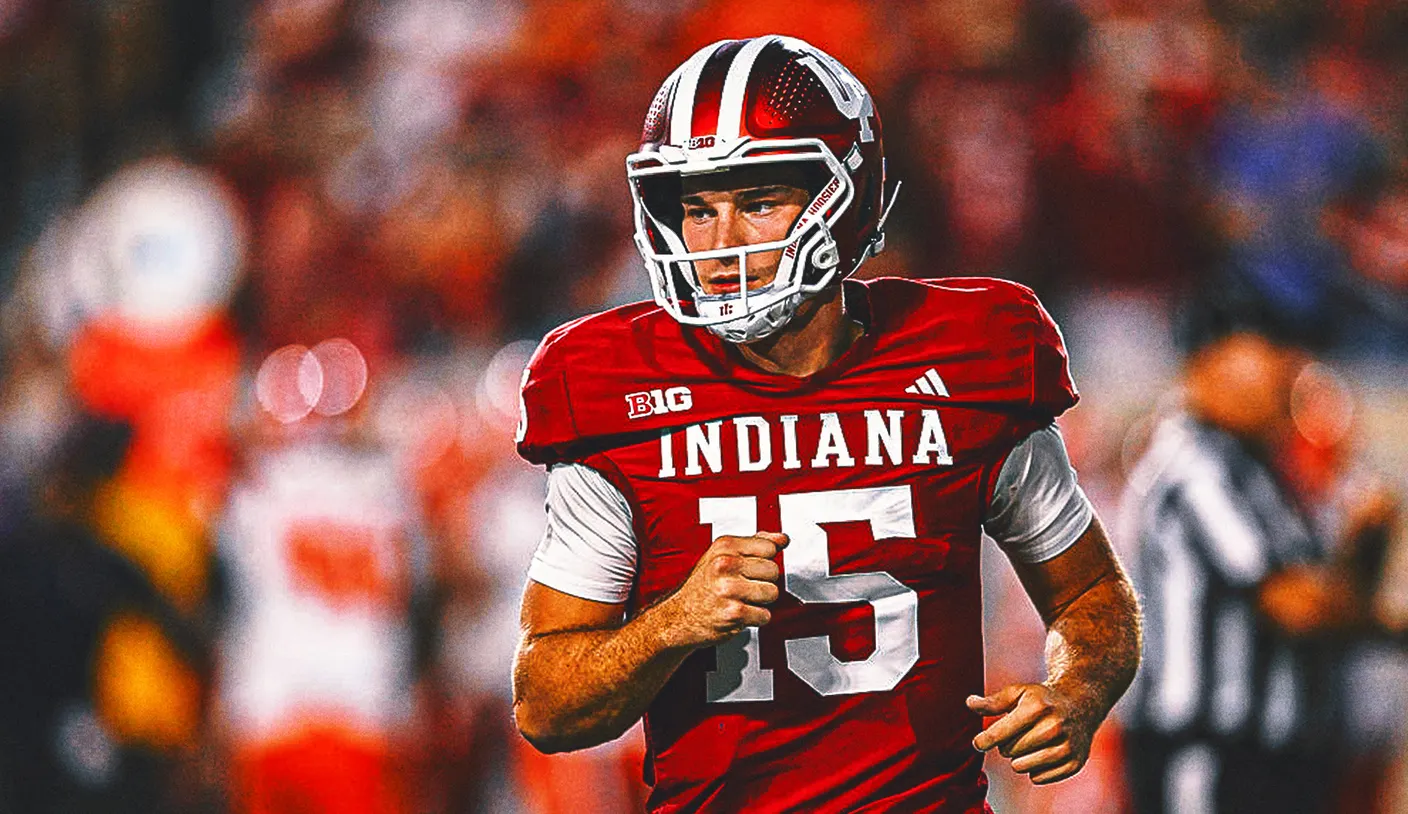
We’re on to the quarterfinals of the College Football Playoff.
Let’s look at the odds for the second round at DraftKings Sportsbook as of Dec. 21.
This page may contain affiliate links to legal sports betting partners. If you sign up or place a wager, FOX Sports may be compensated. Read more about Sports Betting on FOX Sports.
WEDNESDAY, DEC. 31
No. 10 Miami vs. No. 2 Ohio State
Cotton Bowl
Spread: Ohio State -10
Moneyline: Ohio State -360, Miami +285
O/U: 41.5
What to know: Miami won a defensive slugfest in the first round at Texas A&M, and now it gets the defending champion Buckeyes, with a spot in the semifinals on the line. What has to worry Hurricanes fans is that Miami scored just 10 points against the Aggies on Saturday, a middle-of-the-pack defensive team. Ohio State has the best defense in the country, only allowing more than 10 points twice this season. No team has scored over 16 on the Buckeyes.
THURSDAY, JAN. 1
No. 9 Alabama vs. No. 1 Indiana
Rose Bowl
Spread: Indiana -7
Moneyline: Indiana -258, Alabama +210
O/U: 48.5
What to know: Would you believe that the Hoosiers are a 7-point favorite over mighty Alabama? It’s a new era in college football. The Tide went to Oklahoma and knocked off the Sooners in the first round of the CFP, and now they get a date with undefeated Indiana, the top team in the country. Indiana will trot out Heisman winner Fernando Mendoza at quarterback, and the Hoosiers have scored 55 points or more six times this season.
No. 6 Ole Miss vs. No. 3 Georgia
Sugar Bowl
Spread: Georgia -7
Moneyline: Georgia -270, Ole Miss +220
O/U: 56.5
What to know: Ole Miss dominated Tulane in the first round of the Playoff, jumping out to a 41-3 lead before winning 41-10. Now, the Rebels get another shot at the Bulldogs, who they lost to back on Oct. 18 in Georgia, 43-35. It won’t be a cakewalk for the Bulldogs, who trailed 35-26 in the third quarter of that game before scoring the final 17 points to eke out an 8-point win.
No. 5 Oregon vs. No. 4 Texas Tech
Orange Bowl
Spread: Oregon -1.5
Moneyline: Oregon -120, Texas Tech +100
O/U: 52.5
What to know: Oregon did what many thought it would do in the first round, and that’s rout James Madison. The Ducks led 34-3 before cruising to a 51-24 victory, setting up a date with Texas Tech on New Year’s Day. OU still has a single loss to its name this season, a 30-20 defeat at the hands of No. 1 Indiana on Oct. 11. The Red Raiders also have only one loss on the year, falling at Arizona State back on Oct. 18.
Want great stories delivered right to your inbox? Create or log in to your FOX Sports account, and follow leagues, teams and players to receive a personalized newsletter daily!
NIL
Oregon Ducks Playoff Uniforms Instantly Steal the Show
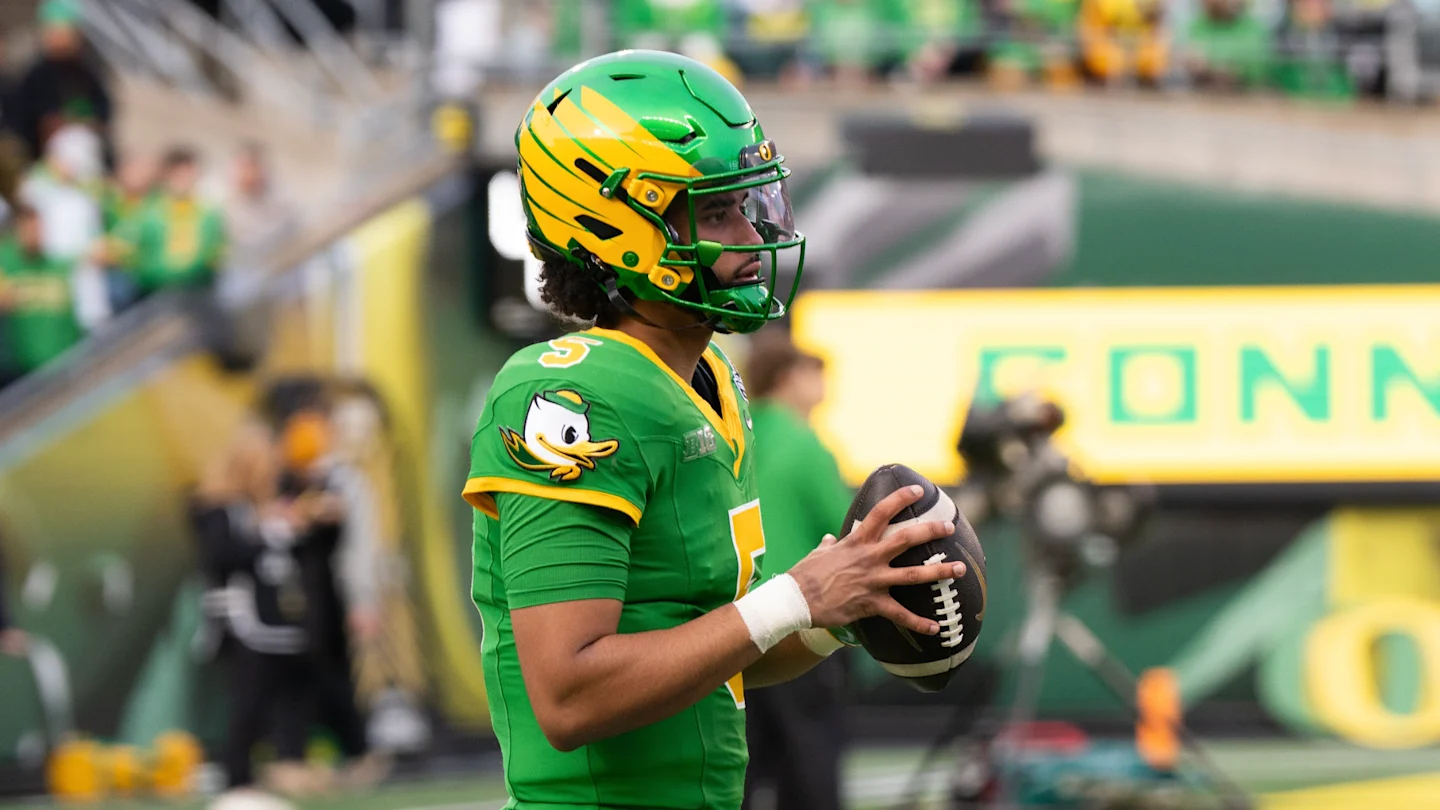
EUGENE – The Oregon Ducks’ uniforms stole the spotlight in the first round of the College Football Playoff. Long celebrated for their innovative Nike designs, the Ducks may have unveiled their most striking combination yet, paying homage to their classic colors while adding fresh, bold details.
As Oregon takes the field against James Madison in Autzen Stadium’s first-ever playoff game, fans and analysts alike struck by the uniform combination and how they add to the pageantry. From the gleaming helmet to the eye-catching cleats, every element of the look was designed to make a statement. In this historic debut, it did just that, reinforcing Oregon’s reputation as the gold standard in college football style.





Oregon’s Uniforms Make Big Statement
The team is wearing a green “Gang Green” Generation O jersey, paired with a glossy green helmet featuring a yellow wing, yellow pants, green undergarments with yellow accents, and yellow-and-green ombre cleats. A College Football Playoff patch sits on the right side of the jersey, just above Oregon’s Nike Swoosh, complete with the logo and “Playoff First Round Presented by Allstate.”
The uniforms also made history – the first time that solid yellow wings were featured on an Oregon helmet in program history. The green helmet, green jersey, yellow pant is a combination that has been worn only six times in program history in the modern era.

Oregon’s uniforms aren’t just cool designs that go viral on social media, they’re a representation of the Ducks’ national brand. Not only do the new uniforms reflect the program’s innovative culture and performance identity – the impact on recruiting is undeniable. It’s not just fashion; it’s strategy and branding.
The electricity in Autzen Stadium is palpable for the postseason game. A true home field advantage, the fans in Eugene know how to turn up the decibel levels. Ducks fans have turned Autzen into a house of doom for opponents who make their way west. The Ducks have an impressive 25-2 record in Autzen Stadium under coach Dan Lanning. The Ducks are 54-4 at home since the start of the 2017 season.
If the Ducks beat James Madison, they will play the No. 4 Texas Tech Red Raiders in the quarterfinals at the Orange Bowl on Jan. 1 in Miami. Oregon is making its third College Football Playoff appearance overall and is one of just four teams (Georgia, Indiana, Ohio State) to make the field each of the last two years.
A win would hive Oregon its first playoff win since since beating Florida State in the CFP Semifinal at the Rose Bowl on Jan. 1, 2015. It also would send Oregon to its first-ever Orange Bowl appearance.
Holiday heat. @CFBPlayoff First Round uniform combo for @OregonFootball. #GoDucks pic.twitter.com/FcWBbbRLbT
— GoDucks (@GoDucks) December 18, 2025
Oregon coach Dan Lanning spoke to how the senior leaders are stepping up before the playoff.
“Guys are excited about the opportunity, but I think it’d be wrong to say that the preparation is different this week than any other week, right? Yes, the game’s different. We all feel that. We recognize that, that it’s different. But it’s not like guys are like, okay, let’s work hard now. They’ve been working hard, right? You work hard to get into this moment, and then it’s about maintaining that level, that standard as you approach games like this,” Lanning said.

MORE: Oregon Ducks Lose Receiver To Transfer Portal Amid Injury Updates
MORE: Oregon Ducks Uniforms Flex The Power Of A National Brand In Playoff Spotlight
MORE: Oregon Ducks Intriguing Injury Report vs. James Madison
SIGN UP FOR OUR NEWSLETTER HERE!
JMU Quarterback Alonza Barnett III Talks Oregon’s Uniform
JMU quarterback Alonza Barnett III on playing in an environment like Oregon’s Autzen Stadium. pic.twitter.com/aG4KviRIeh
— Catie Harper (@CatieHarper) December 15, 2025
JMU’s starting quarterback Alonza Barnett III gave an unexpected shoutout to the Ducks, further highlighting Oregon’s national brand not only through their play throughout the years, but also in their iconic uniform designs.
“They had the flashy jerseys, Marcus Mariota, Darren Thomas, Darren Carrington, Kenjon Barner, a bunch of people. I was one of those kids who grew up watching Oregon. And so, this is an environment you dream of playing in. If you are who you say you are, you can’t shy down when the lights are bright,” Barnett added.
The Ducks look to slow Barnett III, who has thrown for 2,533 yards and 21 touchdowns this season.
NIL
Iowa football lineman highlights importance of opting into bowl games
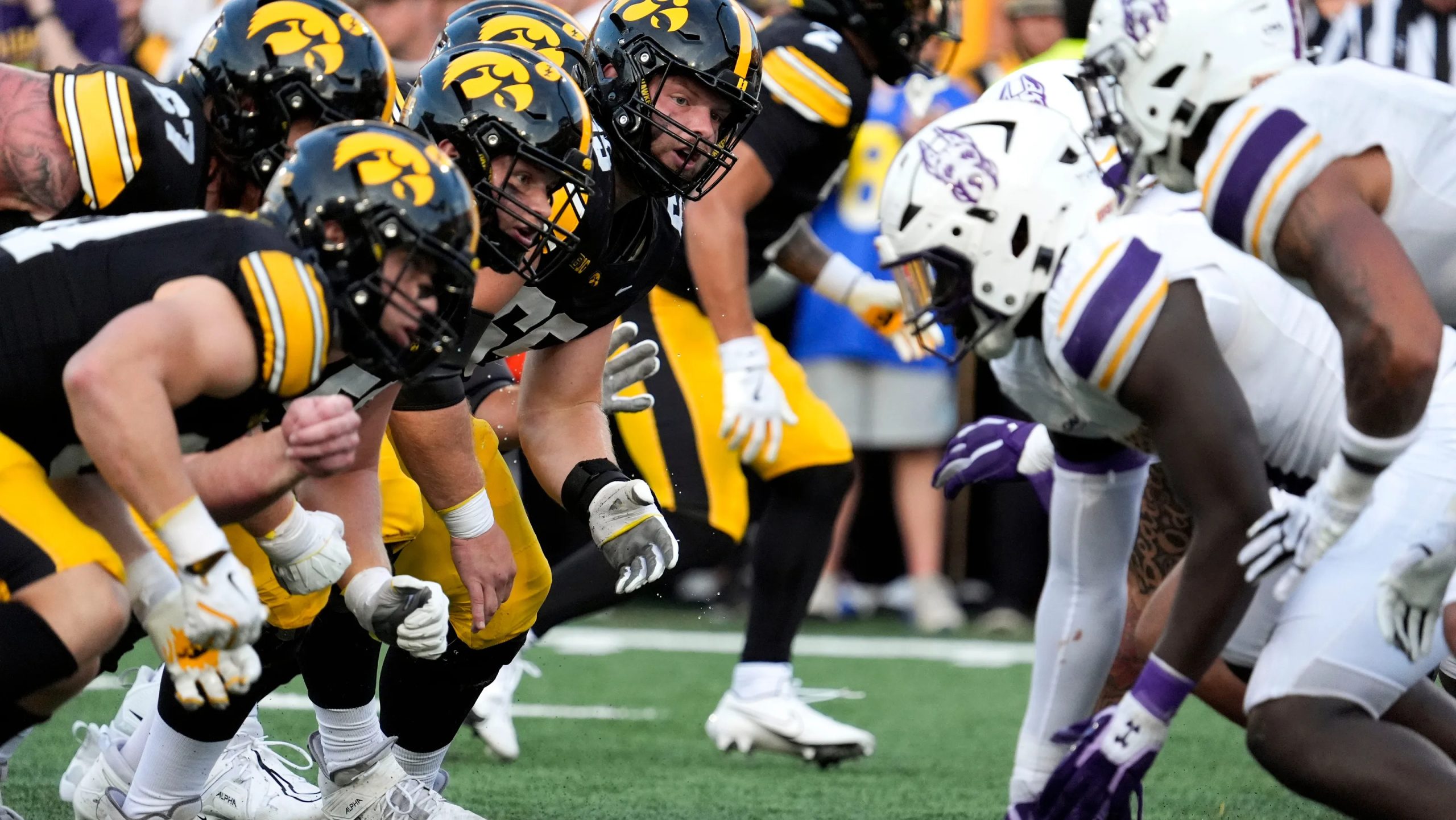
Dec. 21, 2025, 7:45 a.m. CT
As No. 23 Iowa football (8-4, 6-3 Big Ten) prepares for its ReliaQuest Bowl matchup against No. 14 Vanderbilt (10-2, 6-2 SEC), Hawkeyes’ sophomore offensive lineman Trevor Lauck discussed why Iowa’s roster is committed to playing in its upcoming bowl game.
In a college football climate where the influence of NIL opportunities and the transfer portal steer many away from playing in bowl games, Lauck commented on how the Hawkeyes view the ReliaQuest Bowl as a chance to finish the season the right way.
“I feel like the point of college football is to go out there and win games with your team,” Lauck said.
“I feel like people kind of lose track of that when it comes to the bowl season. It kind of turns into people thinking about themselves, and that’s why I’m super fortunate to be here at a school like this. It’s still a team. No one’s really thinking about themselves right now. This is still the 2025 season, and we want to finish it strong.”
Lauck has played in 15 games as a Hawkeye, including all 12 contests this season at left tackle, and is one of the key contributors to Iowa’s dominant offensive line, which is one of three finalists for the Joe Moore Award.
Although no member of the Hawkeyes has opted out of the ReliaQuest Bowl, running back Terrell Washington Jr. reportedly will enter his name into the transfer portal when it opens on Jan. 2, 2026.
The ReliaQuest Bowl will take place at Raymond James Stadium in Tampa, Fla., on Dec. 31. Kickoff is scheduled for 11 a.m. CT and will be broadcast on ESPN.
Contact/Follow us @HawkeyesWire on X (formerly Twitter) and like our page on Facebook to follow ongoing coverage of Iowa news, notes, and opinions. Follow Scout on X: @SpringgateNews
NIL
Texas Longhorns’ Michael Taaffe Reveals Difference-Making Strategy with NIL
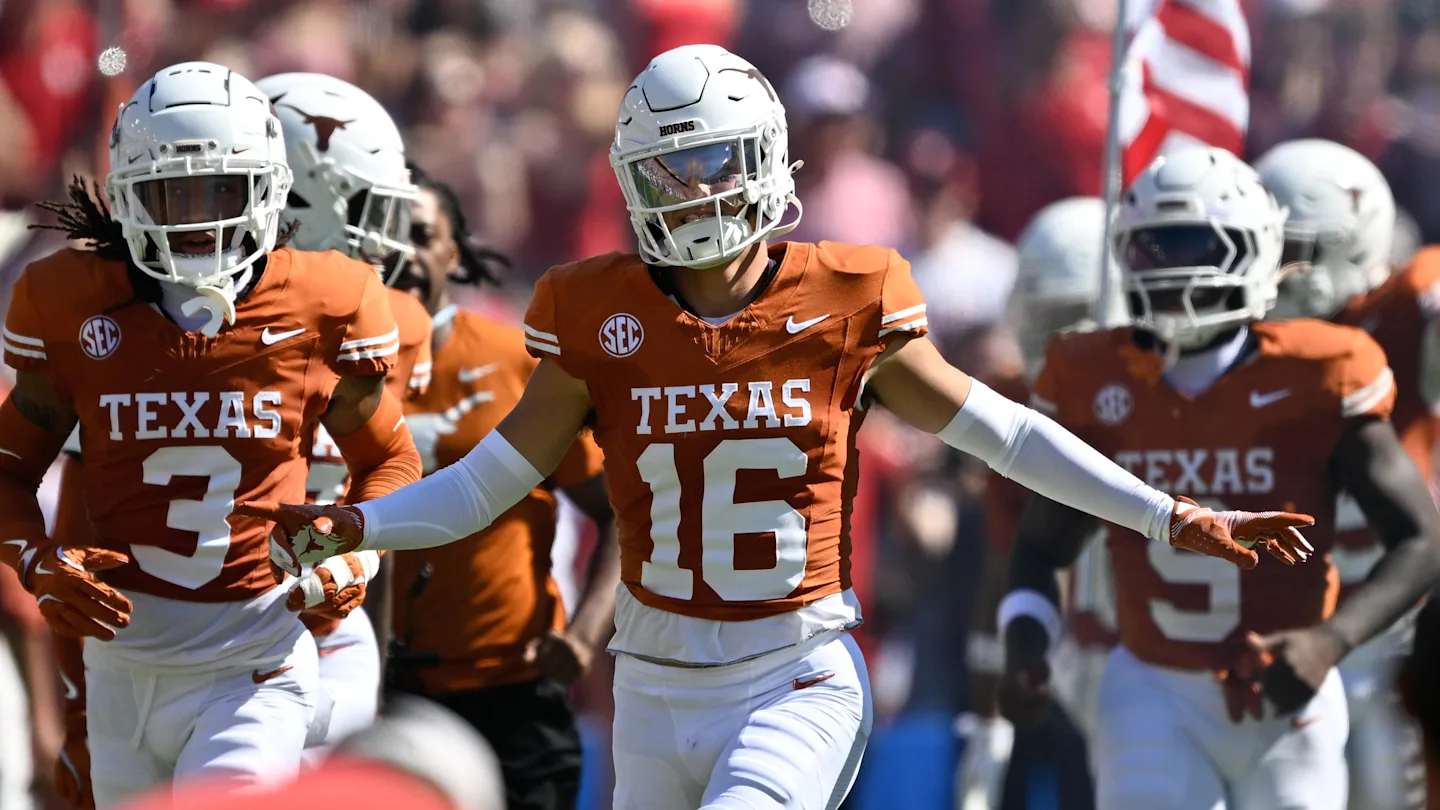
NIL has been one of the biggest and most impactful changes to the world of college football for both programs and athletes.
For some affluent programs, NIL has allowed them to climb back up to be a college football powerhouse, and for those without a track record of great success in the sport its allowed them to gain a seat at the table.
And for the players, they are likely the biggest beneficiaries of it all, finally being able to be financially compensated for the efforts and hard work they put into their programs. However, one Texas Longhorns star has taken a different route when navigating the world of NIL.
Michael Taaffe Discusses his Use of NIL

With Longhorn star safety Michael Taaffe, whether on or off the football field, is one of the best representatives of the Texas program, there’s no better example of that than how the senior has approached NIL and optimized it.
“I think NIL, for me, has been a little bit different because there’s opportunities that I have taken to get a little cash in the wallet, in the pocket,” Taaffe told On3. “But I think, would you much rather have this little success? This little financial success that at the end of the day, when you have to go buy a house, when you have to get a car, when you have to pay rent, this little success isn’t going to matter in the long-term? Or, would you rather have success and significance to the University of Texas that will last 100 years? I chose that route.”
While Taaffe was a part of a few partnerships with outside brands and companies, his main focus was on partnering with Texas Against Fentanyl, where he helped raise nearly $60,000 for the organization through a fundraiser, which he said helped cover the organization’s yearly budget.
Taaffe’s efforts did not go unnoticed, as he was recognized with the Wuerffel Trophy, which is the premier award for community service and recognizes athletes who use their platforms to serve others and create positive change and who exemplify community service, academic excellence, and athletic achievement.
Not only was Taaffe heavily involved with raising awareness of substance abuse, but before the 2025 season, he played a big role in the relief efforts after the flooding at Camp Mystic. The safety participated in a fundraiser for the families and, during SEC Media days, wore a special tie to honor the victims.
Texas DB Michael Taaffe is wearing a tie at SEC Media Days with the initials of the campers & counselors who died at Camp Mystic in the Texas floods🧡
(via @levonwhitt_tv) https://t.co/pEVRDURnuN pic.twitter.com/Tz7Dz2Fshs
— On3 (@On3sports) July 15, 2025
The Longhorns’ star has used his platform to give back to communities in need and to try to make a difference in those communities, which he says hold plenty of importance to him.
“I don’t fault anybody for the routes they take,” Taaffe said. “But I just knew that I believe being significant is way more important than being successful.”
NIL
Why the College Football Playoff system isn’t to blame for lopsided postseason

Everybody wants to fix the College Football Playoff, but nobody seems to know how. There’s a good reason for this. It’s because the College Football Playoff isn’t broken … college football is.
On Saturday, college football die-hards and casuals alike tuned in to watch two games that were largely decided before a snap ever took place. Sure, the possibility of an upset always looms, but the first quarters of Ole Miss’s 41-10 win over Tulane or Oregon’s 51-34 win over James Madison made it clear quickly how those games would go. They were results that would do nothing to slow the ceaseless wave of the college football literati who had spent the last few weeks gnashing their teeth in despair over the possibility these blowouts would happen and what it would all mean.
But the pearl-clutching, hemming and hawing are all directed at the wrong target. What we’re seeing in the College Football Playoff is the result of a far bigger problem in the sport. College football has always been a top-heavy sport, and while we’ve seen a more even distribution of that weight up top thanks to NIL and the transfer portal (the GLP-1 of college football), on the whole, the sport is more top-heavy than ever before.
Resources, talent shifting in one direction
There is far more talent available and far more money coming in than at any time before, and it’s all flowing overwhelmingly in one direction.
If you look at the top recruiting classes for the 2026 cycle, you’ll notice a couple of things. The first is that, for the first time since 2008, the top class in the country belongs outside of the SEC. USC took the honors this year, the first non-SEC program to do so since Miami way back when. Furthermore, Alabama is the only SEC school to finish in the top four, but while that’s nice to see as far as spreading the talent around, it ignores the larger picture.
Sure, the Big Ten has the top spot, but 23 of the top 35 classes call the Big Ten or SEC home. The only non-Big Ten and SEC schools to crack the top 20 were Notre Dame, Miami, Florida State, North Carolina, Texas Tech and Clemson. Of those six, only Notre Dame and Miami are in the top 10, and Miami is 10th.
Pete Golding shows he’s in charge as Ole Miss dominates without Lane Kiffin: ‘He controls what he wants’
John Talty

Damage done by mass realignment
Recruiting rankings are not the only area in which the Big Ten and SEC have consolidated power. They’re just another result of that consolidation. In the last 15 years, the Big Ten has added Nebraska, Maryland, Rutgers, UCLA, USC, Oregon and Washington to the fold. Taking the last four essentially killed the Pac-12, while reaching out and taking Nebraska caused a destabilizing effect on the Big 12. An instability the SEC was all too happy to take advantage of as it poached Missouri, Oklahoma, Texas and Texas A&M from the league over the last 15 years, too. Both leagues will exist in 2026 but largely in name only. Clearly, the Big 12 has survived the attacks much stronger than the Pac-12 has, but the league has seen all of its biggest brands taken from it, which leaves it at a disadvantage when it comes to finding a television deal, causing the gap to grow only wider.
Perhaps that’s why, while we were all forced to suffer the horrors of two uncompetitive football games on Saturday, Arizona State’s Kenny Dillingham was sending out a call to any possible billionaires who wanted to buy him a new roster. Because that’s where we are now with NIL. The sport dragged its collective feet and ignored the giant tidal wave coming at it for decades, only to dive in full speed ahead on openly paying players (some of) what they’re owed. Only, you know, with hardly any regulations or guidelines that everybody can follow and no viable way to enforce them. Whose fault is that? I don’t know? Everybody’s?
Anyway, right now, people are looking at the Group of Five as the problem with the playoff, but believe me: if finances continue to work the way they’re working in this sport, it’s only a matter of time before the ACC and Big 12 get the same treatment people are giving Tulane and James Madison. After all, it’s the Big Ten and SEC who have been handed complete control of the future of the format as a compromise to simply let the ACC and Big 12 continue to exist.
Big Ten, SEC will win out in the end
But, the truth is, the Big Ten and SEC have always controlled the College Football Playoff. The Big Ten and SEC have won nine of the first 11 College Football Playoffs. Clemson is the only team from outside those leagues to win it, and it’s done so twice. Of course, Clemson has only made the field once since the NCAA stopped forcing transfers to sit out a year after changing schools and hasn’t won a playoff game at all. That’s mostly due to Clemson’s stubbornness, but it’s fitting nonetheless.
To drive the point home even further, of the 22 teams that have played in a College Football Playoff National Championship, 16 currently reside in the Big Ten or SEC. Clemson (4x), TCU and Notre Dame are the only teams to get there who aren’t in those leagues (Oregon and Washington made it while still members of the Pac-12, but are now in the Big Ten).
As the Big Ten and SEC expanded, the Big 12 and ACC did what they had to do to try to keep up. All of which has led to bloated conferences spanning the entire continent where you only play half the league in any given season, leading to ridiculous tie-breaker scenarios that end up with a five-loss Duke winning the ACC, which puts those damned Dukes of James Madison in the field!
So what’s the solution? How do we fix it all? I don’t know that you can, but I do believe there’s a natural outcome from all of this that at least leads to equilibrium of some sort.
You simply let nature take its course. Let the Big Ten and SEC finish what they started. Whether you’re excited about it or not — and believe me, I am not — the Super League or whatever dumb name you want to give it is coming. I don’t know if it will be the result of a hostile takeover by the Big Ten and SEC pilfering all the remaining valuable brands once the current television deals expire, or if it’ll be the result of a compromise between the four leagues to break off from the NCAA and form their own, fully professionalized league. But whatever the method, and whatever the final makeup of the schools involved, it is coming.
And when it does, your College Football Playoff will finally be “fixed.” The blowouts, however, will continue.
NIL
Kickin’ It with Kiz: We comin’? They leaving. CU stars dump Coach Prime for greener pastures
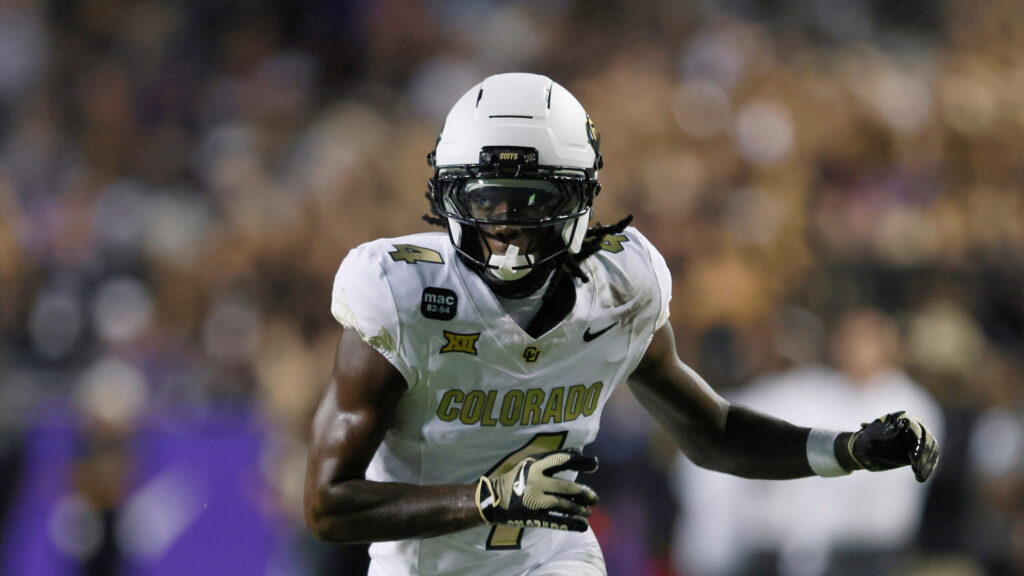
These young men leaving the CU football program want wins. Wins equal NIL money.
– Joe, ninja-like tendencies
Kiz: Maybe it was Deion Sanders’ magnetic personality that attracted wide receiver Omarion Miller and safety Tawfiq Byard to Boulder. But they’re both hitting the transfer portal, because, as it turns out, the Buffs’ top offensive playmaker and most impactful defender from a wretched 3-9 CU team find money more attractive than Coach Prime. We comin’? They leavin’. Louis Vuitton cuts both ways, eh?
Maybe it’s not such a doom-and-gloom situation with Sanders and the Buffs if other football programs are getting hit by the transfer portal in the same way.
– S.D., Buffs fan
Kiz: Can you handle the truth? Sanders came to Boulder to make the CU football program a pro showcase for his son and Travis Hunter. Coach Prime also got his bag. More power to him. But CU was so busy countin’ the money from the increased attention that athletic director Rick George was blind to what’s painfully obvious now. The University of Colorado is not a serious football program. As a coach, is Prime ready to get serious about becoming something more than an Aflac pitchman? We’re fixing to find out.
The NIL mess has ruined college football, Kiz.
– Allison, chasing the sun
Kiz: I am all for an athlete at a big-time football school getting paid, because it’s a strenuous and pressurized job. Always has been. But college football has become a game without any semblance of financial rules, loyalty or ethics. That’s not sport, it’s chaos. College football is my first love. So, this mess not only hurts my heart, but it also gives the Buffs next to no shot at winning another national championship.
The college football system is a wreck. So much is wrong that I wonder how you begin to fix it. The question isn’t: What would you do to fix it? In a practical sense, it’s more like how do you convince people to make the necessary changes?
– Z., Denver
Kiz: ESPN should replace its happy little charade of bowl week with more meaningful programming and call it tampering week. Texas at San Antonio playing Florida International in a bowl on the day after Christmas is a complete waste of everybody’s time, especially when you consider UTSA coach Jeff Traylor expects 20 of his players to opt out of their last dance with teammates. “I hate what’s going on in college football,” Traylor said. “It’s sad, it really is sad. I never thought we’d be punished for making a bowl game by being leveraged, that if you don’t give (players) a certain number, they’re not going to play in a bowl.” Nothing short of a collective bargaining agreement, with binding contracts between players and college teams, is going to fix this mess.
And today’s parting shot warns the Broncos to not start taking their football magic for granted.
Beware the Jags. The Broncos will be facing a tough test. Denver needs to keep its edge. Jacksonville quarterback Trevor Lawrence is playing at a high level. Fingers and toes crossed.
– Z.G., true Bo-liever
-

 Motorsports2 weeks ago
Motorsports2 weeks agoSoundGear Named Entitlement Sponsor of Spears CARS Tour Southwest Opener
-
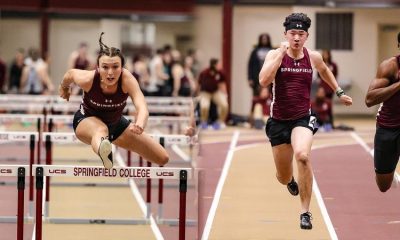
 Sports3 weeks ago
Sports3 weeks agoMen’s and Women’s Track and Field Release 2026 Indoor Schedule with Opener Slated for December 6 at Home
-

 Motorsports2 weeks ago
Motorsports2 weeks agoDonny Schatz finds new home for 2026, inks full-time deal with CJB Motorsports – InForum
-

 Rec Sports2 weeks ago
Rec Sports2 weeks agoBlack Bear Revises Recording Policies After Rulebook Language Surfaces via Lever
-
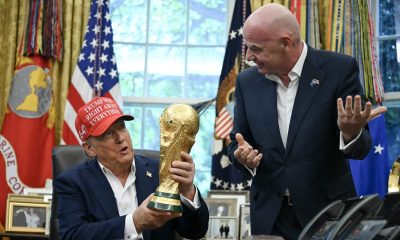
 Rec Sports2 weeks ago
Rec Sports2 weeks agoHow Donald Trump became FIFA’s ‘soccer president’ long before World Cup draw
-
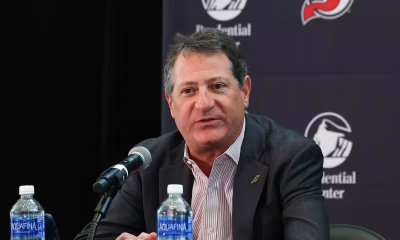
 Rec Sports2 weeks ago
Rec Sports2 weeks agoDavid Blitzer, Harris Blitzer Sports & Entertainment
-

 Motorsports2 weeks ago
Motorsports2 weeks agoJR Motorsports Confirms Death Of NASCAR Veteran Michael Annett At Age 39
-
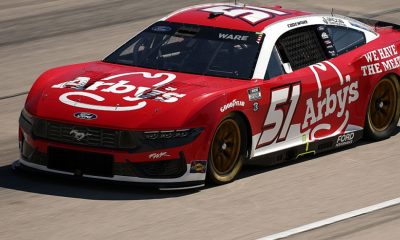
 Motorsports2 weeks ago
Motorsports2 weeks agoRick Ware Racing switching to Chevrolet for 2026
-
Sports2 weeks ago
West Fargo volleyball coach Kelsey Titus resigns after four seasons – InForum
-
Sports2 weeks ago
Elliot and Thuotte Highlight Men’s Indoor Track and Field Season Opener



































